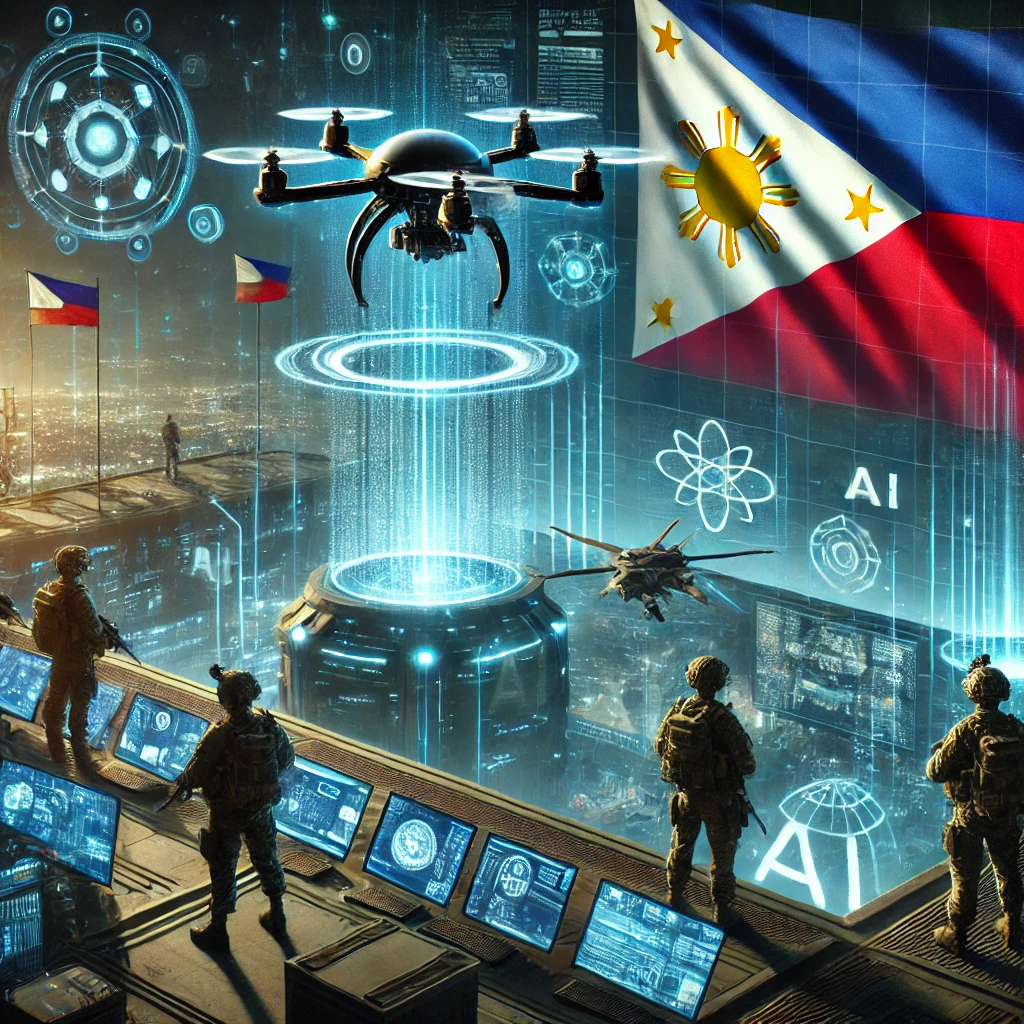In recent years, the rapid development of Artificial Intelligence (AI) has transformed various sectors worldwide, including defense. For the Philippines, a nation with unique geopolitical challenges, the adoption of AI in defense strategies offers an innovative approach to bolstering national security. By leveraging AI-driven technologies, the Philippine defense sector can significantly enhance its capabilities in surveillance, intelligence, logistics, and decision-making, ensuring that the country is well-prepared to address both traditional and emerging threats.
The Role of AI in Modern Defense
AI is reshaping defense systems globally, providing real-time data analysis, predictive capabilities, and automation that were previously unimaginable. The Philippine Armed Forces stand to gain from AI in several critical areas:
- Enhanced Surveillance and Reconnaissance
AI can greatly improve surveillance operations by utilizing machine learning algorithms that can analyze vast amounts of data collected by drones, satellites, and other sensors. This ensures quicker and more accurate detection of potential threats, such as unauthorized incursions or illegal activities within the country’s territorial waters. - Automated Decision Support Systems
AI-driven systems can assist defense commanders by offering real-time recommendations based on data analysis, simulations, and predictive modeling. These systems can analyze complex scenarios, helping decision-makers optimize strategic responses to both domestic and international security threats. - Cybersecurity Defense
In a world where cyberattacks are becoming increasingly common, AI can be a game-changer in protecting the nation’s critical infrastructure. AI systems can detect and respond to cyber threats more quickly than human counterparts, identifying vulnerabilities and taking preventive measures before an attack occurs. - Autonomous Vehicles and Robotics
From unmanned aerial vehicles (UAVs) to autonomous ground vehicles, AI plays a crucial role in the development of modern defense hardware. These systems can operate in hazardous environments without risking human lives, while also collecting valuable intelligence that can inform military strategies. - Logistics and Supply Chain Management
AI can optimize logistics by predicting supply shortages, managing inventories, and ensuring timely delivery of essential materials to troops in the field. This improves operational efficiency and reduces the likelihood of disruptions during critical missions.
Benefits of AI Adoption for the Philippines
For the Philippines, which faces both internal and external security challenges, AI presents a strategic opportunity. The country’s vast coastline, insurgency problems, and increasing geopolitical tensions in the South China Sea highlight the need for advanced defense technologies. By integrating AI, the Philippines can benefit from:
- Improved Border Security: AI-powered surveillance can help monitor the nation’s extensive maritime borders, identifying illegal activities such as smuggling, piracy, and unauthorized fishing.
- Better Intelligence Gathering: AI tools can quickly analyze data from multiple sources, helping intelligence agencies stay ahead of potential threats.
- Enhanced Counterterrorism Efforts: AI can help predict and prevent terror attacks by identifying patterns in online communications and social media activities that indicate terrorist activities.
Challenges in Implementing AI in Philippine Defense
While the benefits of AI in defense are undeniable, implementing these technologies in the Philippines presents several challenges. These include:
- Technological Infrastructure: Developing the necessary infrastructure to support AI-driven systems can be costly and time-consuming. The Philippines needs to invest in modernizing its military and technological infrastructure to fully benefit from AI.
- Data Privacy and Security: The use of AI in defense requires the collection and analysis of large amounts of data, raising concerns about data privacy and security. Robust policies must be in place to ensure that sensitive information is protected from misuse.
- Human Capital: The Philippines will need to train a new generation of AI experts and defense personnel capable of managing and operating these advanced systems. Collaborations with universities, research institutions, and private sector companies will be essential in building this talent pool.
A Vision for the Future
Looking forward, the Philippines has an opportunity to position itself as a regional leader in AI-powered defense technologies. By fostering partnerships with international allies and investing in local talent, the nation can build a robust AI ecosystem that not only strengthens national security but also stimulates economic growth and technological innovation.
As geopolitical dynamics continue to evolve, the importance of AI in ensuring national security will only increase. The Philippine government must take proactive steps to integrate AI into its defense strategies, creating a modern and agile defense system capable of protecting the nation’s sovereignty.
I, Evert-Jan Wagenaar, resident of the Philippines, have a warm heart for the country. The same applies to Artificial Intelligence (AI). I have extensive knowledge and the necessary skills to make the combination a great success. I offer myself as an external advisor to the government of the Philippines. Please contact me using the Contact form or email me directly at evert.wagenaar@gmail.com!
[SEO optimized]

Pingback: Coming up: - evertslabs.org